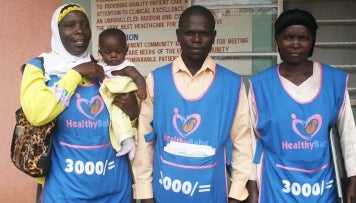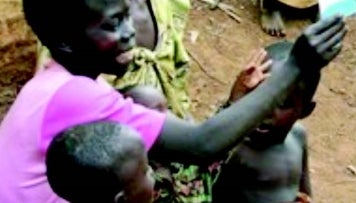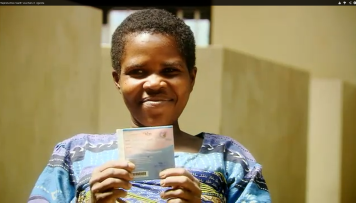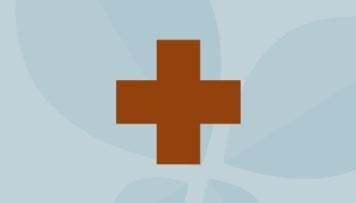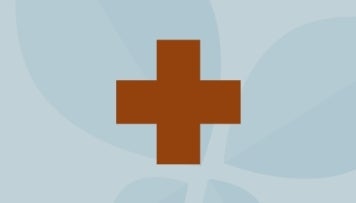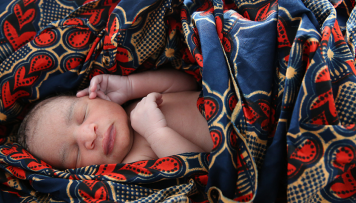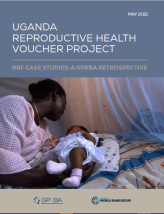
According to a 2003 study, about 505 women die per 100,000 live births in Uganda because of lack of access to health service facilities and professional health care. The loss of a mother can shatter a family and threaten the well-being of surviving children.
Grace Nyakato, a 37-year-old mother of three, is pregnant with her fourth child. She lives in Hoima, a tranquil district located 203 kilometers from Kampala (the capital city), in western Uganda. There are 53 health facilities in the area for a population of about 600,000. Grace lives 15 kilometres away from her nearest health facility.
The high cost of health care in Uganda – where most people live on less than a dollar a day – is also an obstacle to access. Just 36 percent of expectant mothers give birth at a health facility; the majority still relies on traditional birth attendants with little or no formal training, increasing the risk of death during childbirth.
Tackling an old problem with a new approach
Hoima is one of 20 districts participating in a pilot project to help poor communities gain access to reproductive health services. The Global Partnership on Output-Based Aid (GPOBA), a partnership program administered by the World Bank, is using output-based aid (OBA) to make access to health services possible. OBA is a results-based approach that ties payment of public funding directly to the delivery of specific services or “outputs”.
Women like Grace can buy a voucher which they can use to pay for services at local clinics, including a “safe delivery” package of four ante-natal visits, a delivery attended by a trained medical professional, and one post-natal visit. GPOBA, working with Uganda’s Ministry of Health, subcontracted
Marie Stopes International (Uganda) (MSI) to implement the scheme. MSI accredits local clinics that offer services to patients in exchange for the pre-paid vouchers. This type of scheme was first tested in Uganda by the German Development Cooperation (
KfW), also a partner of the OBA scheme.
OBA is a simple idea that is making a big difference. According to Peter Okwero, World Bank project manager for the Reproductive Health Vouchers in Western Uganda scheme: "This project has successfully brought maternal and other reproductive health services to rural communities in western Uganda.” Dr. Okwero adds, “By using the voucher scheme, women have been empowered to choose their preferred service providers; and the providers have increased revenues, and they have recorded major improvements in knowledge and clinical practice as well as quality of care.
Once approved services have been delivered and independently verified, clinics submit claims for payment to MSI. See how mobile phones are being used to manage the claims process. A GPOBA grant of over US$4 million makes vouchers affordable for the poor by paying the difference between actual cost of services and the amount people are willing or able to pay. Grace and other users of the scheme pay 3,000 shillings, about US$1.20 for a voucher. Services cost from 60,000 shillings (US$24) to 200,000 shillings (US$78) for more complicated cases.
Local service providers
Sister Kerezin, a midwife, runs the nonprofit St Jude Thaddeos clinic. She has served the community for many years and has seen firsthand the loss of life caused by lack of access to health care. In a March 2011 interview with GPOBA, Sister Kerezin explained: “Sometimes the mother and baby have died or the mother dies and leaves the baby alone in this world. These things are very painful.”
The clinic serves an estimated 50,000 people, mostly refugees from the Congo and Sudan and internally displaced people from Northern Uganda. The facility is a one block building housing offices, a maternity ward, and a general ward. The wall partitions are made of papyrus mats. St Jude Thaddeos is an example of the small, local service providers that have made the OBA scheme possible.
Sister Kerezin encourages expectant mothers to buy a voucher as soon as they know they are pregnant. She observes that the “safe delivery” package has made it easier to “monitor a pregnancy from the beginning to the end,” helping avoid preventable tragedies.
Delivering results for the poor
Justine Asaba, a 28-year-old mother of four, is also a project beneficiary. Asaba dropped out of primary school after the loss of her parents to HIV/AIDS and was forced to marry at an early age. She receives little financial support from her husband and cannot afford private healthcare. Asaba was able to obtain quality care for her last pregnancy through the OBA voucher scheme. Justine told GPOBA: "At first I could not believe it when they told me about it [the voucher system]. So I went to the Local Council leaders to ask for more information and I was referred to the clinic where I found other women who were using this service." The OBA voucher was "sent from heaven" for her, she said. She made use of all of her antenatal appointments and gave birth to a healthy baby boy.
So far, over 50,000 babies have been safely delivered to mothers participating in the OBA scheme. By the time the pilot ends in December 2011, 136,000 people will have received a range of reproductive health services from maternal care to screening and treatment for sexually transmitted diseases.
